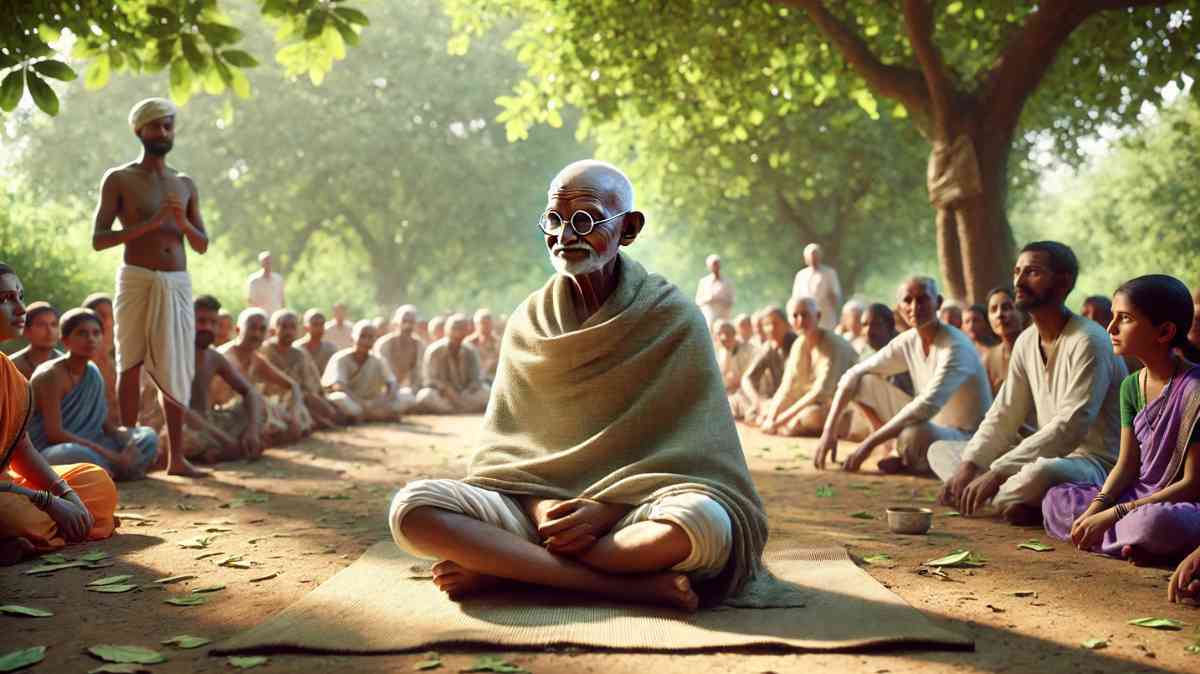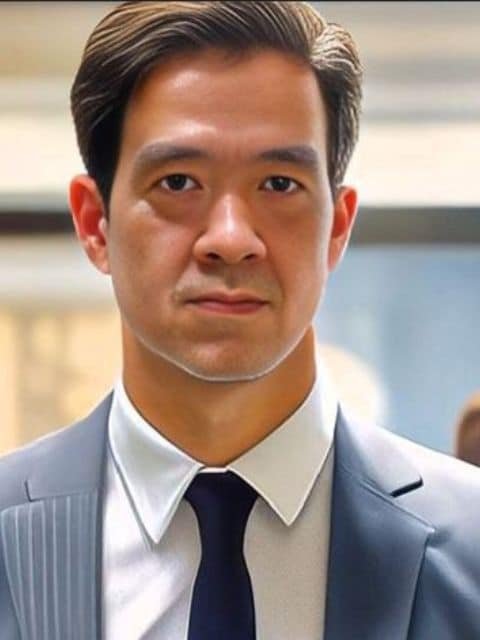The quotes of Mahatma Gandhi transcend time, geography, and culture, offering wisdom that remains deeply relevant even in the 21st century. Known as the “Father of the Nation” in India, Gandhi’s philosophy of truth and non-violence was a cornerstone of his life and leadership. His quotes inspire millions to embrace simplicity, strive for self-improvement, and champion peace.
Jump Ahead
Introduction to Mahatma Gandhi Quotes
Gandhi’s quotes are not just historical artifacts; they serve as tools for exploring the twists of modern life. They challenge us to rethink our values, urging us to act with integrity and empathy. These quotes reflect the moral clarity and inner strength of a man who transformed the world through peaceful resistance.
Who Was Mahatma Gandhi?
Mohandas Karamchand Gandhi, or Mahatma Gandhi, was born on October 2, 1869, in Porbandar, India. As a lawyer and activist, he became a global icon for peace and non-violent resistance. His leadership in India’s struggle for independence left an indelible legacy that inspires movements even today. Gandhi’s commitment to truth and justice shaped not only his life but the lives of countless others.
Reflecting on his life story reminds us of the power of steadfast dedication. To learn more about his journey, visit Gandhi’s Life History.
The Philosophy Behind Gandhi’s Words
Gandhi’s philosophy was rooted in fundamental principles:
- Truth (Satya): “Truth never damages a cause that is just.” Reflecting on this, one sees how honesty forms the bedrock of trust and justice.
- Non-Violence (Ahimsa): “Non-violence is the greatest force at the disposal of mankind.” This reminds us that peace can often achieve what violence cannot.
- Simplicity: “Live simply so that others may simply live.” A poignant call for mindful consumption and a simpler lifestyle.
- Self-Reliance: “The best way to find yourself is to lose yourself in the service of others.” This challenges us to think of fulfillment in terms of helping others.
Each principle provides a pathway to a meaningful life.
Inspirational Mahatma Gandhi Quotes
- “Be the change that you wish to see in the world.” – Mahatma Gandhi. This timeless quote inspires self-reflection and action.
- “In a gentle way, you can shake the world.” – Mahatma Gandhi. A reminder that even the smallest actions can have significant impacts.
- “Happiness is when what you think, what you say, and what you do are in harmony.” – Mahatma Gandhi. It underscores the importance of alignment in our intentions and actions.
- “Strength does not come from physical capacity. It comes from an indomitable will.” – Mahatma Gandhi. Strength, as Gandhi sees it, is rooted in resilience and determination.
- “The future depends on what you do today.” – Mahatma Gandhi. A powerful call to embrace the present moment.
Quotes on Non-Violence (Ahimsa)
- “Non-violence is the greatest force at the disposal of mankind.” – Mahatma Gandhi. A powerful reminder of peace as a tool for change.
- “An eye for an eye will only make the whole world blind.” – Mahatma Gandhi. This profound statement warns against the endless cycle of revenge.
- “The weak can never forgive. Forgiveness is the attribute of the strong.” – Mahatma Gandhi. Forgiveness, according to Gandhi, is a sign of strength, not weakness.
- “Non-violence requires a double faith, faith in God and also faith in man.” – Mahatma Gandhi. His emphasis here is on trust as a foundation for peace.
- “Whenever you are confronted with an opponent, conquer him with love.” – Mahatma Gandhi. A poignant reminder to respond to hostility with compassion.
Truth and Satyagraha in Gandhi’s Quotes
- “Truth alone will endure, all the rest will be swept away before the tide of time.” – Mahatma Gandhi. Gandhi’s deep conviction in truth as eternal resonates profoundly.
- “Truth is one, paths are many.” – Mahatma Gandhi. This reflects his universalist approach to understanding.
- “The pursuit of truth does not permit violence on one’s opponent.” – Mahatma Gandhi. Gandhi’s insistence on ethical methods complements his vision of justice.
- “Civil disobedience becomes a sacred duty when the state becomes lawless.” – Mahatma Gandhi. This reminds us that peaceful protest is a moral obligation in the face of injustice.
- “Satyagraha is the vindication of truth, not by infliction of suffering on the opponent, but on oneself.” – Mahatma Gandhi. This philosophy redefines strength as the ability to endure for a just cause.
Love and Compassion in Gandhi’s Words
- “Where there is love, there is life.” – Mahatma Gandhi. A simple yet profound reflection on love’s transformative power.
- “Hate the sin, love the sinner.” – Mahatma Gandhi. This quote challenges us to separate individuals from their actions, fostering compassion.
- “Love is the strongest force the world possesses.” – Mahatma Gandhi. A powerful testament to the enduring strength of love.
- “Service which is rendered without joy helps neither the servant nor the served.” – Mahatma Gandhi. This encourages us to serve others wholeheartedly.
- “The best way to find yourself is to lose yourself in the service of others.” – Mahatma Gandhi. A guiding principle for self-discovery through altruism.
Leadership and Change
- “You may never know what results come of your actions, but if you do nothing, there will be no results.” – Mahatma Gandhi. This encourages proactive engagement with the world.
- “A leader is useless when he acts against the prompting of his own conscience.” – Mahatma Gandhi. True leadership, Gandhi reminds us, is rooted in authenticity.
- “You must be the change you wish to see in the world.” – Mahatma Gandhi. This emphasizes personal responsibility as a precursor to societal change.
- “It is better to lead from behind and to put others in front, especially when you celebrate victory.” – Mahatma Gandhi. Leadership, as he defines it, is about enabling others to shine.
- “Leadership is not about popularity; it is about integrity.” – Mahatma Gandhi. A reminder that true leaders prioritize principles over praise.
Education and Learning in Gandhi’s Quotes
- “Education is the basic tool for the development of consciousness.” – Mahatma Gandhi. This highlights how education shapes not just intellect but also moral values.
- “Literacy is not the end of education nor even the beginning.” – Mahatma Gandhi. Gandhi challenges the idea that education is limited to reading and writing.
- “True education must correspond to the surrounding circumstances.” – Mahatma Gandhi. A call for practical, context-based learning.
- “The best way to reform education is to make it more personal and intuitive.” – Mahatma Gandhi. This suggests a move away from rote learning.
- “An educated mind serves not just oneself but the entire humanity.” – Mahatma Gandhi. Education, according to Gandhi, is a responsibility toward society.
Mahatma Gandhi’s Quotes on Religion
- “All religions are true but flawed through human interpretation.” – Mahatma Gandhi. This reflects Gandhi’s belief in the universality of faiths.
- “I believe in the fundamental truth of all great religions of the world.” – Mahatma Gandhi. His deep respect for different faiths is evident in this quote.
- “God has no religion.” – Mahatma Gandhi. This profound statement challenges divisiveness in the name of religion.
- “Faith is not something to grasp, it is a state to grow into.” – Mahatma Gandhi. Gandhi reminds us that faith is a journey, not a destination.
- “Religion is a matter of the heart and does not need fanfare.” – Mahatma Gandhi. A beautiful reminder that spirituality is deeply personal.
Gandhi on Self-Improvement
- “It is health that is real wealth, not pieces of gold and silver.” – Mahatma Gandhi. A reflection on the importance of prioritizing well-being over materialism.
- “You may never know the result of your actions, but take action anyway.” – Mahatma Gandhi. A call to act with courage, regardless of immediate outcomes.
- “Self-improvement begins with self-acceptance.” – Mahatma Gandhi. Gandhi emphasizes the need for inner peace to grow.
- “Anger and intolerance are the enemies of correct understanding.” – Mahatma Gandhi. A timeless warning against letting emotions cloud judgment.
- “The best way to self-improvement is through selfless service.” – Mahatma Gandhi. True growth, he believed, comes from helping others.
Mahatma Gandhi Quotes on Peace and Harmony
- “Earth provides enough to satisfy every man’s needs but not every man’s greed.” – Mahatma Gandhi. This reflection urges us to adopt sustainable practices.
- “The greatness of a nation can be judged by the way its animals are treated.” – Mahatma Gandhi. Gandhi’s focus on compassion extends to all living beings.
- “Nature has everything for man’s need, but not for his greed.” – Mahatma Gandhi. A call to honor and preserve the environment.
- “Sustainable development starts with sustainable thinking.” – Mahatma Gandhi. His words resonate deeply in today’s environmental discourse.
- “The best way to bring peace is to first bring harmony to your own life.” – Mahatma Gandhi. Gandhi reminds us that peace begins within.
Learn how Gandhi’s principles inspired global initiatives by exploring UN Peace Initiatives Inspired by Gandhi.
Conclusion: The Timeless Wisdom of Gandhi
Mahatma Gandhi quotes remain deeply relevant, offering guidance on truth, love, and non-violence. They challenge us to strive for personal and societal improvement, serving as touchstones for a life of purpose and integrity. By embracing his teachings, we can navigate a path toward peace and understanding in a world often divided.
FAQs about Mahatma Gandhi Quotes
1. What are Gandhi’s most impactful quotes?
“Be the change that you wish to see in the world” and “An eye for an eye will only make the whole world blind” are two of his most recognized quotes.
2. How do Gandhi’s quotes inspire leadership?
His words encourage leaders to act with conscience, compassion, and courage, emphasizing integrity over popularity.
3. How does Gandhi’s philosophy of non-violence apply today?
In an age of conflict, his emphasis on peaceful resolution and love for opponents provides a powerful counter-narrative.
4. Why are Gandhi’s quotes on simplicity so important?
They highlight the value of living within one’s means and reducing consumption for a balanced life.
5. What role do Gandhi’s teachings play in education?
He believed education should develop both character and intellect, fostering a holistic approach to learning.
Author

Nash Irons chases big questions for a living. Most mornings begin with him wedged between a philosophy classic and yesterday’s news, scribbling notes on how Socrates might handle social media or what the fall of Rome says about today’s headlines. Then he distills the best of both worlds into one sharp quote and a practical takeaway you can test before the day is over. His posts for Quote of the Day don’t just retell history; they invite you to argue with it, learn from it, and spot its fingerprints on modern life. Nash’s aim is simple: turn centuries-old wisdom into fresh lenses so curious minds everywhere can see today—and themselves—a little more clearly.
View all posts


